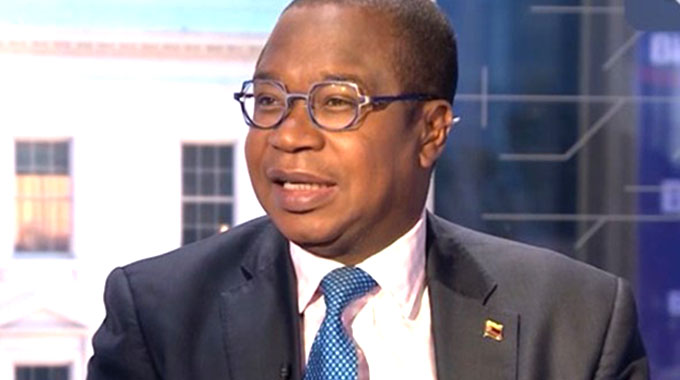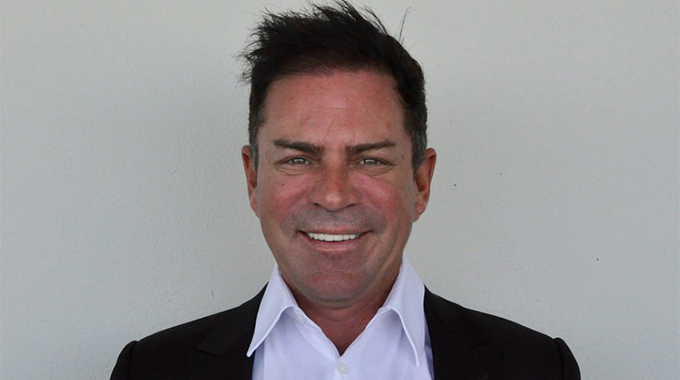EDITORIAL COMMENT : Dollarisation was a sentence to poverty

When Finance and Economic Development Minister Prof Mthuli Ncube called dollarisation in 2009 “our biggest mistake” while speaking at a post-Budget breakfast meeting this week he was perhaps exaggerating since the total collapse of the old Zimbabwe dollar in the wild hyperinflation that preceded dollarisation would take pole position in many eyes.
But he was totally correct that our recovery from that currency collapse was, in real economic terms, exceptionally muted and continued use of the US dollar as our reference currency would have condemned Zimbabweans to near eternal poverty and made our country a nation of shopkeepers and shoppers.
The hyperinflation, fed by the howling printing presses at Fidelity Printers trying to fix the ever growing hole in Government finances, had however created a situation where no one trusted anyone in the fiscal and monetary authorities.
It might just have been possible to have launched a new stable Zimbabwean currency then, but only if there had been a total change in Government budgeting culture and a total change in those running the Finance Ministry and the Reserve Bank of Zimbabwe.
And this did not happen until the advent of the Second Republic.
As Prof Ncube stressed, and as many in the shattered productive sectors of the economy at the time made clear, the combination of dollarisation and putting just about everything we could possibly import on the open general import licence basically killed off much of what remained of our primary manufacturing capacity and severely restrained recovery even in secondary industry.
We became a nation of consumers of other people’s goods. The commercial sector and a swathe in the services sector were able to recover and even grow, but there was nothing real underpinning this growth, no new wealth being created.
Most people were living off the flow of diaspora dollars, either first hand or second hand or third hand, with the bulk of the limited export earnings earmarked for critical imports like fuel, electricity and bulk food and the little left over being used to keep the industrial remnants alive, if not flourishing.
Many forget just how low salaries and most other earnings were at the start of dollarisation and how difficult, or nearly impossible, it was for anyone in business to borrow money to rebuild as our liquidity had been totally destroyed, but that was reality.
We were poor because there was little money to go round and we were likely to stay poor as we were not creating new production and so were not creating new jobs.
Admittedly the growing fiscal indiscipline of the then Government, and the resulting return to quasi-fiscal operations at the Reserve Bank, gave an illusion that we were flourishing and could grow richer by pretending that the fake US dollars we were creating were as real as those printed by the US Federal Reserve.
The problems of dollarisation would have become very apparent very early on to everyone not in receipt of real US dollars, such as through large diaspora monthly remittances, as we would all have stayed poor.
Dollarisation could have lasted forever if need be, if it was backed by fiscal discipline, but at the cost of low standards of living and, infinitely more importantly, no hope of growing our way out of that poverty.
As it was, the industrial sectors did their best to continually remind everyone that they were crushed by dollarisation, unable to grow or compete and, in many cases, even unable to recover from the hyperinflation collapse.
Eventually that led to partial relief, with the end of the system of open general import licences for most consumer goods, but the gains were very modest and were soon overtaken by the growing liquidity chasing a static pool of the real US dollars needed to pay foreign suppliers, who not unnaturally were not going to take our fake dollars. That led to the creation of the black market.
It is odd to reflect that dollarisation only lasted as long as it did because of First Republic fiscal indiscipline, but when the new dispensation came into office, with clear minds and a determination to fix the problems and start a process that would lead to real economic growth, creation of real wealth, they found the double mess of an import-dominated economy and a growing pool of liquidity not backed by anything vaguely real.
In other words, the wheels had come off and the real world was about to make its presence felt.
Fortunately the Second Republic opened just in time to avoid the total collapse we had seen in 2009, but the new fiscal and monetary authorities have had their work cut out to start the process of converting Zimbabwe from a consuming economy to a producing economy.
And in these transitional 27 months they have managed to clear the decks, avert the total collapse of 2009, and this time not just initiate a recovery, but start that production drive that will bring prosperity.
One advantage that Prof Ncube and his Treasury team, and for that matter RBZ Governor Dr John Mangudya and his team, had was being able to see the results of every other failed attempt to create a growing economy through printing money.
And, perhaps most critically, they had the backing of a President who could see as well as they could what was needed and had the strength of character to carry the political responsibility of putting things right to achieve what he wanted, the Vision 2030.
And the technocrats and Government at large saw the dangers of tying an economy to a foreign currency, the import-domination, the impossibility of growth. So this time we are doing it right.
The landing is not as soft as we all hoped, but we landed, and the critical sectors of our economy are now growing. Miners are digging out more metal, farmers are growing more food and cash crops, industrialists have recovered and are starting to grow.
We are still poor, although now that we have stopped pretending we know this. But this time, by getting the fundamentals right, we can move forward together. We threw away our last chance, in 2009.
This time we have managed the recovery a whole lot better, dug proper foundations and now we are building that expanding productive economy, which is the only way we will ever move from tuckshops and market stalls to a real prosperous economy where everyone can enjoy earned prosperity.









Comments